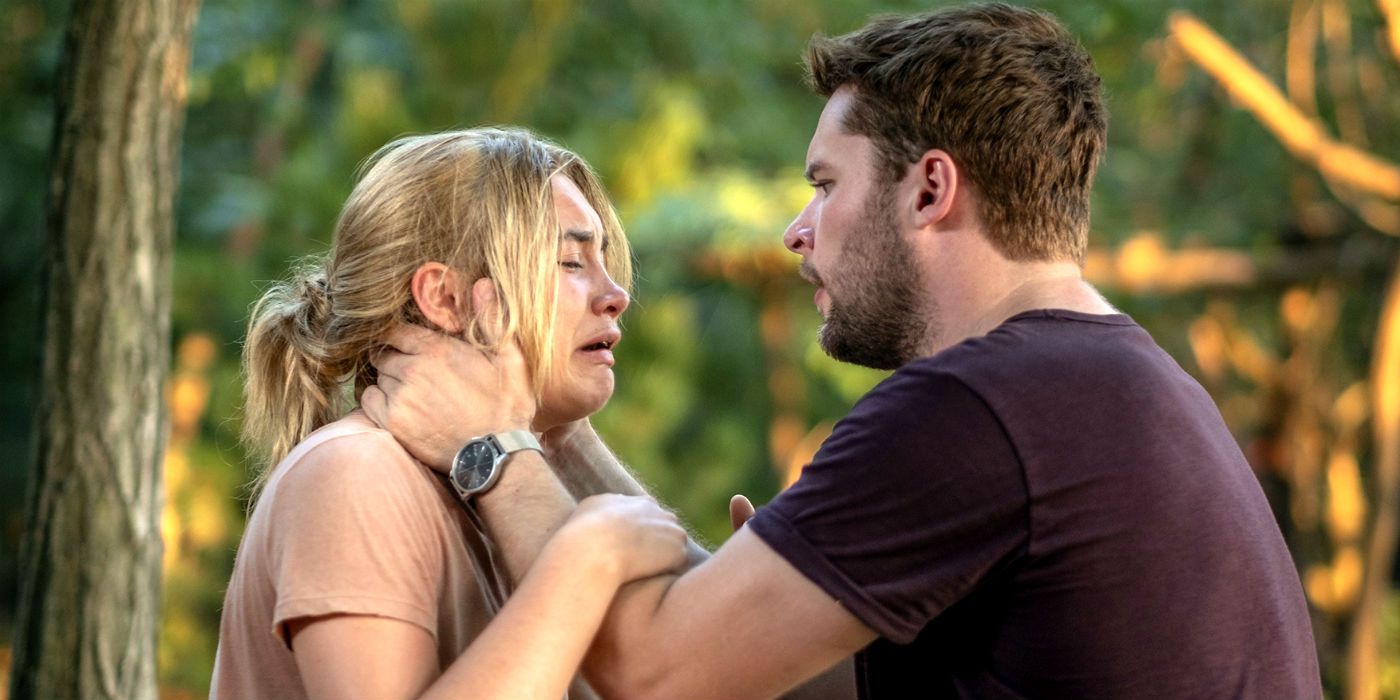Ari Aster’s films are well-known for being subversive and humanist, overturning existing stereotypes of the genre, and Midsommar is no exception. From its bright, summery imagery to its twisted message about growth and family, it clearly brings to the screen a fresh new story that highlights the human experience as horror and in doing so, subverts one of the genre's biggest problems.
Similar to the way that Hereditary places a spotlight on the family and the emotional experience of Toni Collette’s Annie, Midsommar focuses on Florence Pugh as Dani and her emotional turmoil during her rocky relationship with her boyfriend, Christian, played by Jack Reynor. This power dynamic, however, gets flipped on its head throughout the course of the movie’s action as Dani gradually comes into her own power and leaves Christian behind — eventually, even to his death.
In other ways, this shifting power also highlights the way that women have traditionally been treated in horror as sexual objects, with female nudity and vulnerability being a horror mainstay. Midsommar turns that particular trope on its head, showcasing Christian’s full-frontal nudity scene as an opportunity to make the character as vulnerable as possible.
Ari Aster has quickly become a horror icon with his two most recent movies, Hereditary and Midsommar, creating deeply realistic horror that pays close attention to the experience of women, specifically. In Midsommar, he wrote a breakup movie couched in horror elements.
A large part of what makes Midsommar really special is the way he subverts the horror stereotype of female vulnerability and sexuality by placing men into those same situations. Often, horror movies feature nudity as a way to make the female characters either appear more vulnerable or to make their deaths feel more justified; sexual activity is considered deviant — consider, for example, ‘the virgin’ and ‘the slut’ archetypes in slasher movies. In Midsommar, Aster turns this stereotype on its head and gives women the power, whereas men become vulnerable, nude, and even potentially deviant. In an interview with THR, Jack Reynor discusses this intent through his nude scene, saying that he was really excited to step out of his comfort zone for the movie, and be a part of such an interesting horror role reversal.
“He suffers this very humiliating and exposing fate, and, as a cinephile, I’ve really only ever seen that happening to female characters in the horror genre, especially in a sexual context. So, it was an opportunity to be part of something that flipped that on its head, and I really wanted to engage with the experience of it by advocating for as much full-frontal nudity as possible.”
While Reynor has also been very candid about empathizing with his character, Christian, to a certain extent as well, he felt that it was very important that during this scene Christian be viewed as humiliated and as vulnerable as possible; full-frontal nudity was the best way to accomplish that. This stands in stark contrast to classic slasher and horror movies like Friday the 13th, where nudity and sex are used as ways to make women more vulnerable, or in rape-revenge movies like The Last House on the Left where traditionally, it’s women who have to endure extended physical and mental torture.
Midsommar also has some interesting things to say about male victimhood, and how men can be vulnerable in both positive and negative ways. Positive, in that Christian is a character the audience is not meant to sympathize with, and negative, in that he’s being victimized during his sex scene with Maja, as he’s drugged and clearly not in control of his faculties. Ari Aster has a lot to say in Midsommar, and uses the movie to comment on breakups, the experience of women, and humanism as horror. Additionally, his use of nudity in the movie helps to subvert the traditional stereotypes of women as the sexual object by placing Christian in this position instead.


